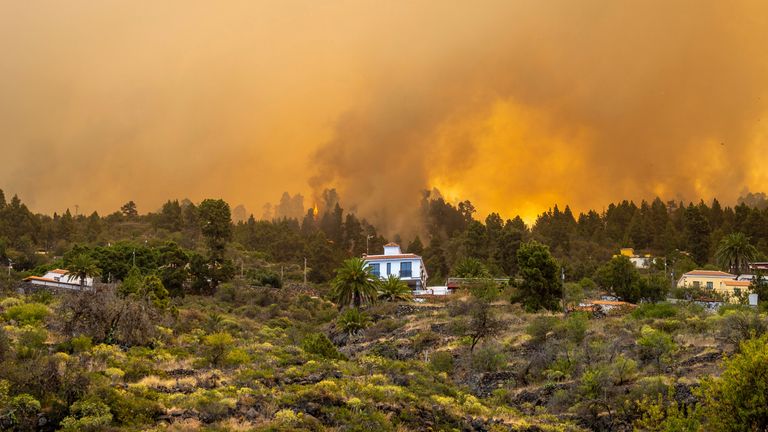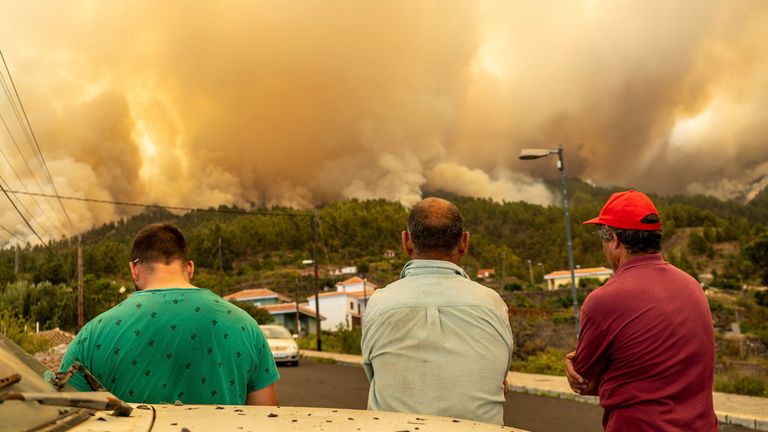The heatwave enveloping southern Europe is set to intensify even further today – with temperatures expected to reach as high as 46C.
Spain, Italy and Greece will bake tomorrow and the European Space Agency has warned that France, Germany and Poland will also face extreme heat over the coming days.
Sardinia and Sicily – among 16 areas under red alert – are forecast to hit 45C, while Taranto in southern Italy is expected to roast in 46C heat, 2.8C off the European record set in August 2021 in Floridia, Sicily.
Parts of Europe could “get levels similar to record levels” senior climate scientist Carlo Buontempo told Sky News.
The Spanish tourist hotspots of Madrid and Seville will also see temperatures exceeding 40C, as British holidaymakers are reconsidering their summer plans.
Please use Chrome browser for a more accessible video player
0:17
Map shows heatwave across Europe this week

Pic: AP
Athens will also contend with plus 40C conditions, days after the iconic Acropolis landmark temporarily closed to protect tourists from the incessant sun.
Wildfires have ripped across areas near the Greek capital, as firefighters tackled a blaze near Kouvaras, a village some 16 miles southeast of Athens.
Meanwhile a wildfire that started Saturday on the Canary Island of La Palma continues to burn out of control, with thousands of people evacuated.

La Palma devastated by the wildfires

La Palma
Read more:
‘Italy no longer has four seasons’
Why is Europe being hit by such high temperatures
Please use Chrome browser for a more accessible video player

0:40
Forest fires rage on La Palma
“The climate crisis is not a warning. It’s happening. I urge world leaders to ACT now,” tweeted the head of the World Health Organisation (WHO) Tedros Ghebreyesus.
His words echo a warning from the World Meteorological Organisation that the world could possibly warm up by more than 1.5C before 2027.
Earth an ‘inferno’
Earth will become an “inferno” if these heatwaves don’t spur on governments to tackle global warming, according to climate scientist Dr Akshay Deoras of the University of Reading.
Humanity should expect “more frequent and intense” extreme weather events if global temperatures continue to rise at their current rate, Dr Deoras said.
“We knew early on that exceeding a 1.5C warming would have catastrophic consequences for extreme weather events, including the scorching heatwaves we are now seeing in Spain and Italy.”
The Paris Agreement, signed by 175 countries, sought to stop 30-year global temperature averages rising 1.5C above those recorded in the second half of the 19th Century – before industrialisation saw fossil fuel emissions soar.







